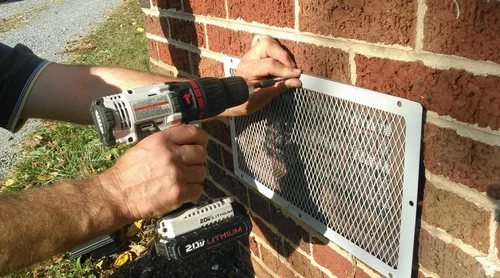Protect your home with our comprehensive rodent proofing solutions designed to safeguard your insulation and ensure a pest-free environment. Rodents can cause significant damage by nesting in insulation, chewing electrical wires, and spreading diseases. Our expert team employs proven methods to seal entry points, such as gaps and cracks in walls and roofs, preventing rodents from entering. We use durable materials that withstand weather and wear, ensuring long-lasting protection. By rodent-proofing your home, you not only preserve the integrity of your insulation but also enhance safety and reduce potential health risks associated with pests. Trust us to deliver effective rodent proofing that secures your home and provides peace of mind.

